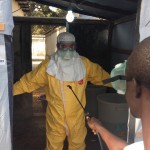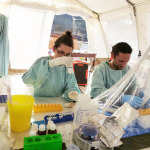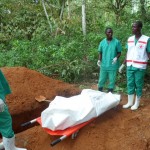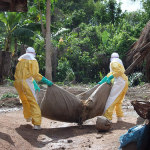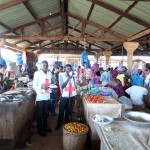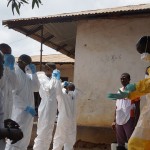The CLEME (Community Led Ebola Man- agement and Eradication) programme aims at triggering the behavioural change needed by the communities to strengthen community resilience to the outbreak and prevent further resurgence by ensuring real and sustainable improvements through: Providing the communities with the means to conduct their own appraisal and analysis of the Ebola outbreak, their safety regarding the disease and its con- sequence if nothing is done; Instilling a feeling of urgency in engaging in community actions that will prevent the community experiencing infections; Supporting
Continue reading →
This paper seeks to understand the fear many Guineans feel towards Ebola response initiatives and why the educators, doctors and burial teams have sometimes encountered resistance, occasionally violent. Resistance has been catastrophic for the epidemic, preventing treatment, contact tracing and quarantine, permitting its spread. The paper sketches a history of dissent and violence during the epidemic before showing how some actions that Ebola response teams interpret as ‘resistance’ are less actions ‘against’ Ebola response, than actions that have their own cultural logics. But the paper
Continue reading →
This report provides further output from an anthropological study of 25 villages affected by Ebola Virus Disease in eastern and central Sierra Leone, undertaken as part of the DFID-funded social mobilization initiative for Ebola prevention in Sierra Leone. Eight focus group transcripts for 3 villages in Kenema District are presented, covering local responses to health issues, and Ebola in particular. Supporting material from a matching questionnaire-based study of health behavior and perceived causes of Ebola is also provided. Of particular relevance are two summary tables
Continue reading →
In a recent interesting contribution to this platform, Paul Richards rightly questioned the mainstream perception that funerals per se are source of contamination in countries affected by ebola. The author argues that funerals are phenomena which are extremely interrelated to other different aspects of social life, like the overall care of sickness, the concept of authority, and the logic of parenthood. Yet, his brief paper has another value: by stressing the complexity of this social phenomenon, it tunes down the journalistic emphasis that in past
Continue reading →
This briefing summarises the attitudes of Monrovia community leaders and residents towards cremation, mass burials, memorialization, and remembrance ceremonies based on data collected between August – September 2014.
This working paper reports on a study to collect data on co-morbidity and co-mortality among urban Liberian populations during the Ebola epidemic from September to October 2014. Particular attention is paid to how local communities defined their symptoms and sicknesses, the patterns of healthcare-seeking that they pursued in a context of highly restricted health care access, the types of treatment regimens that they deployed to support home based care within their communities, and their perceptions of the causes of disease.
This working paper reports on a study to identify epidemic control priorities among 15 communities in Monrovia and Montserrado County, Liberia. Data were collected in September 2014 on the following topics: prevention, surveillance, care-giving, community-based treatment and support, networking/hotlines/calling response teams and referrals, management of corpses, quarantine and isolation, orphans, memorialization, and the need for community-based training and education. The study also reviewed issues of fear and stigma towards Ebola victims and survivors, and support for those who have been affected by Ebola. The findings
Continue reading →
